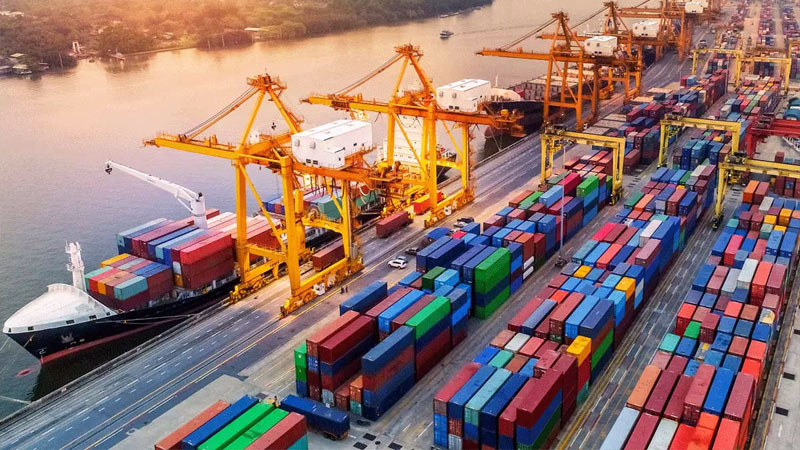Exclusive content

Kolkata port, serving as a crucial gateway to eastern India, is currently grappling with a series of challenges that are poised to disrupt trade activities. Officials have voiced their concerns regarding geopolitical tensions, a government-imposed rice export ban, and skyrocketing ocean freight costs. Key export items such as engineering goods, shrimp, and rice have been particularly affected in recent weeks.
Surging Freight Costs
One of the major issues faced by exporters is the substantial increase in freight charges, especially for shipments to West Coast destinations. Since December of the previous year, freight costs have surged by 30-50 percent. This surge is primarily attributed to the escalating conflict in the Red Sea, which has led most major shipping liners to reroute their vessels around the Cape of Good Hope to avoid the Red Sea. Unfortunately, this alternative route has resulted in significant delays of 14-20 days, adding to the logistical and financial woes of exporters.
The shift in shipping routes has not only caused delays but also resulted in higher freight and insurance costs. Consequently, this has placed additional pressure on exporters’ profit margins. The sudden spike in costs has even prompted the temporary hold-up of several export consignments, affecting the overall flow of goods.
Debojyoti Basu, Vice-President of the Calcutta Customs House Agents’ Association, has noted that freight costs have reached unprecedented levels, with prices ranging from USD 400-500 per 20ft container to USD 600-700 for 40ft container shipments to the UK.
Rice Export Ban
Adding to the challenges, the recent ban on white and broken rice, along with a 20 percent export duty on parboiled rice imposed by the government, has further hampered exports. Kolkata port had previously witnessed the export of approximately 2,000 containers of parboiled rice, primarily to Southeast Asia. The rice export ban and duty have had a significant impact on this sector, causing financial strain and prompting some exporters to withhold their orders.
Suraj Agarwal, Director of Villa Group, a leading rice company, highlighted the dire situation by stating that these challenges have resulted in a loss of over USD 80 per tonne in their last 20 shipments. The export business for non-basmati rice is under considerable strain, and Agarwal expressed concerns about its sustainability in the coming months if the situation remains unchanged.
Impact on Industry
Rakesh Shah, former chairman of Engineering Export Promotion Council (EEPC) India, emphasized that the disruption in the Red Sea has led to increased container shipping rates and disruptions in timelines. Shipping delays are posing a risk to adherence to Tariff Rate Quotas (TRQs) in Europe, potentially harming export opportunities for various industries.
While these challenges are significant, Kolkata port authorities have stated that they have not yet observed a substantial impact on export volumes. Rathendra Raman, Chairman of Syama Prasad Mookerjee Port, Kolkata, has projected a modest five percent growth in traffic for the current fiscal year 2023-24, citing geopolitical headwinds. Despite the hurdles, the port aims to conclude the year with a cargo traffic volume of 68 million tonnes.